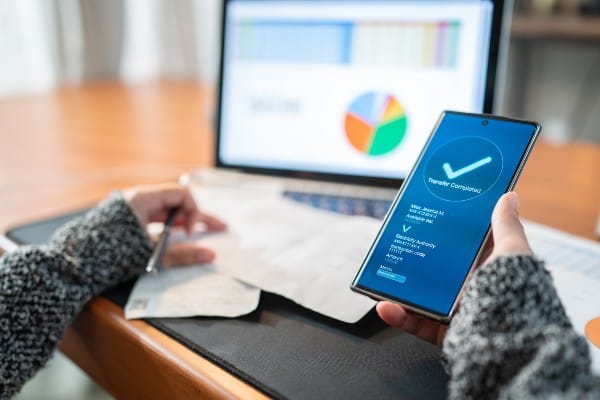
We all know we should manage our money better—but let’s be real, tracking every expense, budgeting for the future, and saving for emergencies doesn’t come naturally for most of us. I used to scribble numbers in a dusty notebook, telling myself I’d “get serious about finances next month.” Spoiler alert: I didn’t. That was until I discovered how powerful the right personal finance tools could be. And trust me, once you find a tool that clicks, it’s like turning on the lights in a dark room.
In this guide, we’re diving deep into the best personal finance apps and tools in 2025—what they do, why they matter, and how to pick the one that fits your lifestyle. Whether you’re just starting out, trying to escape debt, or looking to invest smarter, there’s a solution waiting for you.
Why Personal Finance Tools Matter More Than Ever
We’re living in a time where inflation, unpredictable markets, and shifting job landscapes have made it harder to feel financially secure. According to CNBC, over 60% of Americans live paycheck to paycheck. But it’s not all doom and gloom—technology has made money management more accessible, smarter, and even fun.
The best apps today don’t just track expenses—they analyze spending habits, send intelligent alerts, automate savings, and even invest on your behalf. The goal? Make financial literacy feel effortless.
Top Personal Finance Tools and Apps to Know in 2025
Let’s walk through the best apps across different categories—from budgeting and investing to credit tracking and savings automation.
1. YNAB (You Need A Budget) – For Habit-Based Budgeting
YNAB isn’t just an app—it’s a philosophy. It teaches you to assign every dollar a job, whether it’s for groceries, bills, or that dream vacation to Italy.
Key Features:
- Real-time budget syncing across devices
- Zero-based budgeting method
- Goal tracking and financial education tools
Why People Love It:
Unlike traditional trackers, YNAB helps users develop better money habits. According to NerdWallet, YNAB users save an average of $600 in the first two months and $6,000 in the first year. That’s powerful.
2. Mint – For Effortless Budgeting and Expense Tracking
If you want a simple, clean way to track spending, set budgets, and monitor your credit score, Mint remains a top choice.
Key Features:
- Categorizes transactions automatically
- Alerts for bills and subscriptions
- Credit score monitoring powered by TransUnion
Real-World Example:
When I switched to Mint, I was shocked to see how much I spent on delivery apps each month—over $300. That eye-opener helped me cut back significantly.
Mint is also now integrated into Intuit Credit Karma, which expands its ability to offer personalized financial insights.
3. Personal Capital (Now Empower) – For Net Worth & Investment Tracking
More than just a budgeting tool, Empower shines as a wealth management platform that lets you track your net worth, analyze investments, and plan for retirement.
Key Features:
- Retirement planner and fee analyzer
- Tracks all financial accounts in one place
- Investment checkups and asset allocation reviews
Expert Insight:
Investopedia named Empower one of the best apps for retirement planning thanks to its forward-looking tools that simulate different financial scenarios.
4. Rocket Money (formerly Truebill) – For Canceling Subscriptions and Reducing Bills
We all sign up for free trials and forget to cancel. That’s where Rocket Money steps in—it helps you identify, manage, and cancel unused subscriptions.
Key Features:
- Bill negotiation services
- Credit score tracking
- Smart savings and spending insights
Quick Tip:
I had an old cloud storage account draining $12/month. Rocket Money flagged it, and with one tap, it was gone.
5. Goodbudget – Best Envelope Budgeting App
Inspired by the classic envelope system, Goodbudget brings cash-style discipline into the digital age.
Key Features:
- Syncs across multiple devices
- Visualizes spending categories as “envelopes”
- Excellent for couples budgeting together
Why It Works:
According to Forbes Advisor, users report that envelope budgeting helps them avoid overspending and stick to a spending limit—especially in high-expense categories like dining out or entertainment.
6. PocketGuard – Best for Preventing Overspending
PocketGuard tells you what you can spend today—after accounting for bills, goals, and necessities. It’s for anyone who struggles with the “Can I afford this?” question.
Key Features:
- “In My Pocket” feature shows available cash
- Tracks and lowers recurring bills
- Goal-based savings tracker
Use Case:
If you’re a freelancer or gig worker with variable income, PocketGuard’s flexibility can be a life-saver.
7. Monarch Money – Best for Customization and Shared Budgets
Monarch is a newer tool making waves with its elegant UI, joint household planning, and deep customization.
Key Features:
- Collaborate on finances with a partner or advisor
- Personalized dashboards
- Built-in investment tracking
What Makes It Unique:
Unlike many apps that focus only on individuals, Monarch is built with family and relationship money planning in mind.
8. Acorns – For Micro-Investing Automatically
Acorns rounds up your spare change and invests it in diversified portfolios. Perfect if you want to start investing without thinking about it.
Key Features:
- Round-ups from everyday purchases
- IRA accounts and retirement tools
- Offers education through Grow magazine (Grow from Acorns)
Actionable Insight:
Investing even $1/day via Acorns could build a substantial nest egg over time. You can also earn cash back when shopping with Acorns’ partners.
9. Zeta – Designed for Couples and Families
Zeta focuses on joint money management while still allowing partners to maintain individual financial identities.
Key Features:
- Shared and personal expense tracking
- Bill-splitting tools
- In-app messaging for financial planning
Personal Note:
A friend of mine and his partner used Zeta to save for their wedding—it kept them on the same page without financial friction.
10. Credit Karma – Best Free Credit Monitoring Tool
A pioneer in credit score access, Credit Karma now offers loan recommendations, credit card matching, and credit builder accounts.
Key Features:
- Free credit scores and reports
- Tax filing services
- Identity monitoring alerts
Expert Validation:
Backed by Equifax and TransUnion, Credit Karma remains the go-to tool for those looking to boost their credit profile.
🔍 Comparison Table: Best Personal Finance Tools at a Glance
| App/Tool | Best For | Key Feature | Free/Paid | Ideal User Type |
|---|---|---|---|---|
| YNAB | Budgeting mindset | Zero-based budgeting | Paid (trial) | Budget-conscious planners |
| Mint | Expense tracking | Auto-categorized budgets | Free | Beginners & casual users |
| Empower | Net worth & investments | Retirement planner | Free + Paid | Investors & professionals |
| Rocket Money | Subscription management | Bill cancellation/negotiation | Free + Paid | Oversubscription victims |
| Goodbudget | Envelope budgeting | Digital envelope system | Free + Paid | Cash-style budgeters |
| PocketGuard | Preventing overspending | “In My Pocket” feature | Free + Paid | Income-variable earners |
| Monarch Money | Shared planning | Household customization | Paid | Couples & families |
| Acorns | Micro-investing | Round-up investing | Paid | New/inactive investors |
| Zeta | Couples’ finances | Shared and personal tracking | Free | Partners & parents |
| Credit Karma | Credit tracking | Free credit scores | Free | Credit-focused users |
✅ How to Choose the Right Tool for You
Choosing a personal finance app is like choosing the right pair of shoes—it needs to fit your lifestyle.
Here’s what to consider:
- Are you a spender or a saver?
If you tend to overspend, look into PocketGuard or YNAB. - Do you invest or want to start?
Acorns and Empower are great for beginners and experienced investors alike. - Managing solo or with a partner?
Monarch Money and Zeta are excellent for joint planning. - Need to clean up subscriptions or credit?
Rocket Money and Credit Karma make it easy.
Try a few apps and see what sticks. Most offer free trials or freemium models, so test drive before you commit.
🙋♀️ Frequently Asked Questions (FAQ)
Q1: What’s the best free personal finance app in 2025?
A: Mint and Credit Karma remain top choices for free users. They cover budgeting, credit tracking, and basic analytics.
Q2: Can I use more than one app?
A: Absolutely. Many people use Credit Karma for credit, YNAB for budgeting, and Acorns for investing.
Q3: Are personal finance apps safe?
A: Most reputable apps use bank-level encryption. Look for two-factor authentication and check their privacy policy before linking accounts.
Q4: Do these apps work outside the U.S.?
A: Some (like YNAB, Empower, and Goodbudget) have global support. Others are region-specific, so always verify compatibility.
Q5: What’s the difference between budgeting and tracking apps?
A: Budgeting apps help plan where your money should go. Tracking apps show you where your money did go.
💡 Final Thoughts: Your Money, Your Future, Your Control
The world isn’t getting any cheaper. But with the right tools, you don’t have to feel like your finances are spiraling. Whether it’s budgeting with YNAB, investing with Acorns, or keeping tabs on credit via Credit Karma, today’s tools empower you to make informed decisions.
Personal finance is deeply personal, but it doesn’t have to be overwhelming. Take time to experiment, automate what you can, and revisit your progress monthly. Think of these tools as your financial co-pilots—helping you build habits today that lead to peace of mind tomorrow.
So go ahead—download that app. Start small. Take the wheel of your financial life and steer it somewhere extraordinary.


